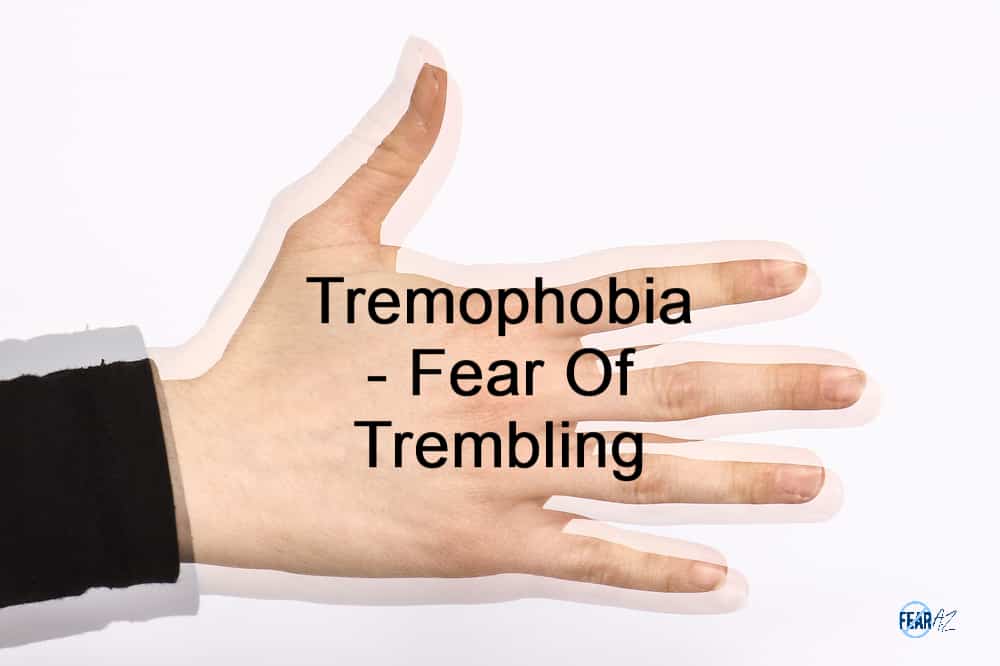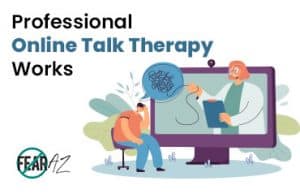Share This Article
Tremophobia: Rare but Real
Does hearing someone’s phone vibrate cause anxiety? Does even thinking of an earthquake grip you by your throat?
If you identified with either of those scenarios, you may have tremophobia, an intense fear of tremors or earthquakes.
Tremophobia, or the fear of trembling or shaking, may sound unrealistic, so explaining your feelings to a loved one may be difficult. But don’t worry, you’re not alone.
Many suffer from phobias, including tremophobia. And the increased awareness about mental health has reduced the taboo surrounding mental health issues. You can even search for a complete list of phobias from A to Z to learn about other unexpected phobias.
The good news is that tremophobia can be treated. There are numerous self-help strategies as well as different therapies that are known to help deal with this fear. Read on to learn more about the fear of trembling and how you can overcome it.
What Is Tremophobia?
So, what is the fear of shaking phobia?
Tremophobia is defined as a morbid, uncontrolled, and persistent fear of shaking, trembling, or seismic movements. It comes from the English word “tremor” meaning involuntary quivering movement, like that of the ground shaking during an earthquake. This is closely related to seismophobia.
Tremophobia has become a more common fear due to increased earthquake activity worldwide. Experiencing even the slightest tremor may bring back memories of the previous time when one experienced an earthquake.
The fear may stem from the unknown. An earthquake is something one cannot control and thus cannot do anything to avoid it. People fear the destruction it leaves behind.
Many also associate earthquakes with doomsday. It’s a common belief that an earthquake or series of earthquakes may bring an end to life on earth. So, for those who follow such a belief, a fear for their lives may also contribute to the development of this phobia.
Tremophobia Causes
Like all other phobias, no psychiatrist or expert can tell you the exact cause of tremophobia. However, generally, it is a combination of several events and factors that ultimately lead to an unreasonable fear of something.
Tremophobia is mostly associated with previous experiences in an individual’s life. So, when one goes through the same incident later, the body’s defense mechanism kicks in and the unconscious mind develops a phobia. If someone had faced an earthquake before, any catalyst like a simple earthquake scene on television may trigger the phobia.
For example, a child who experienced an earthquake would remember the incident as toys jumping off the shelves or the tables and chairs shaking. And as an adult, when they hear a phone vibrate or experience any form of shaking, they experience a similar level of fear as they did when experiencing an earthquake as a child.
People with a genetic history of mental illnesses, especially anxiety disorders, also have a higher chance of developing phobias.
Tremophobia Symptoms
The symptoms of tremophobia are very similar to signs and symptoms of other fear-based phobias. But these symptoms often differ from one person to another, depending on the severity of their phobia.
Physical Symptoms
- Hyperventilation
- Rise in blood pressure
- Hot and cold flashes
- Nausea
- Sweating
- Trembling
- Dizziness
- Headache
- Fainting
Psychological Symptoms
- Anxiety
- Panic attacks
- Fear of dying
- Re-living previous experiences of an earthquake
- Anger
- Confusion
Tremophobia Treatment
Like many other phobias, there is no one particular cure for tremophobia. Often a therapist will try one or more therapy methods depending on the severity of your phobia and how well you respond to certain treatments.
Along with professional treatment, self-help methods can also help ease your anxiety and panic and help you address your phobia triggers better.
Self-help
When it comes to anxiety disorders like phobias, self-help can be one of the best ways to prevent your irrational fear from taking control of your life. There are many self-help strategies you can try.
You can keep a journal to document your feelings, reactions, symptoms, triggers, etc. When you put your thoughts down into clear words, it often helps you get a bigger perspective. Those with phobias realize that their fear is irrational and cannot cause any real harm.
And although earthquakes can be dangerous, panicking and being anxious about them is hard on you. Try to reassure yourself that earthquakes are uncommon events and that worrying about them is unnecessary.
Whenever you feel anxious, you can try relaxation techniques like deep breathing, yoga, exercise, or meditation. You can also talk to someone and discuss your fear. Be open to joining support groups for phobias. You may not want to share your fears with strangers, but it will help you realize that you’re not alone and that your fears are nothing to be ashamed of.
Professional Help
To treat any form of phobia, reaching out to professionals for their knowledge and experience is helpful.
Depending upon your symptoms, your therapist may employ one or more of the following therapies:
- Cognitive behavioral therapy (CBT)
- Mindfulness-based stress reduction (MBSR)
- Dialectical behavior therapy (DBT)
- Exposure therapy
Medication
In cases when the patient is experiencing repeated panic attacks and therapies do not seem to be making a considerable difference, a therapist may prescribe medication along with therapy.
Most times, beta blockers or antidepressants are prescribed to cope with severe symptoms. Note that these medications are only prescribed for a short term and their use is stopped as soon as the patient becomes stable and starts responding to therapy.
Learning to Cope with Tremophobia
Tremophobia can affect one’s daily life. Often those suffering from phobias isolate themselves for fear of being mocked or ridiculed. It affects their social and personal life and even their professional growth.
It’s important to recognize and accept your fears and take action to get your life back. Along with professional help, leaning on family and friends is also important in one’s healing journey.
Conclusion
Living with tremophobia can be tough. However, you can take measures to overcome your fear and not let it take over your life. With regular therapy and self-care, you’ll work towards a healthier and happier you!





